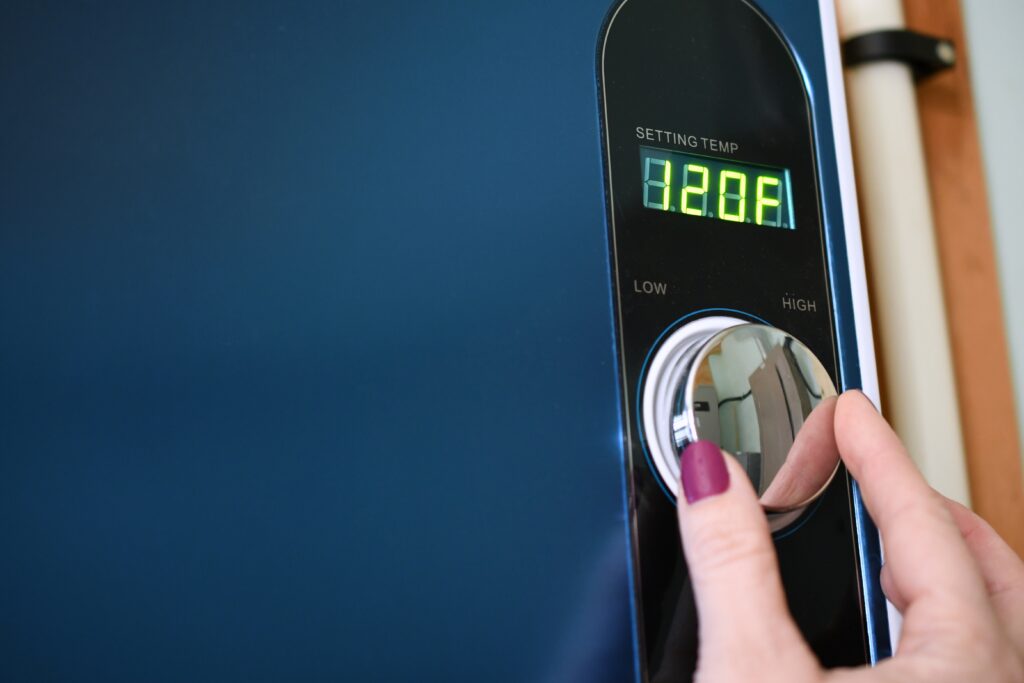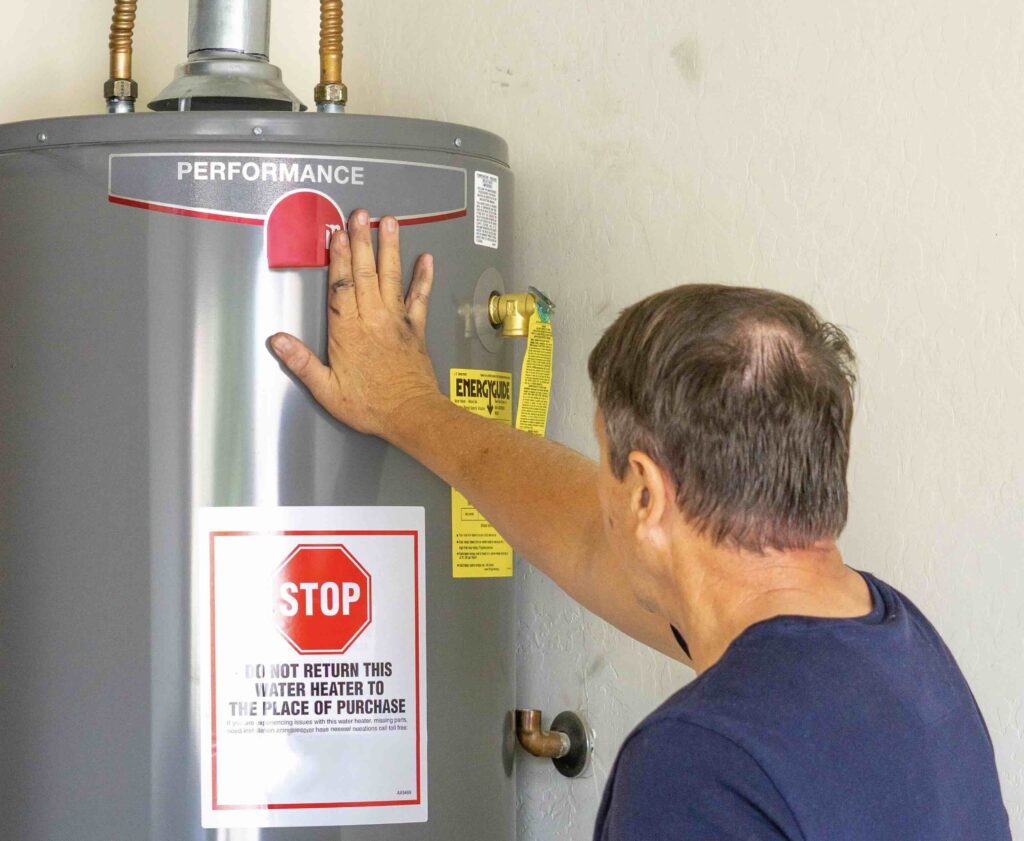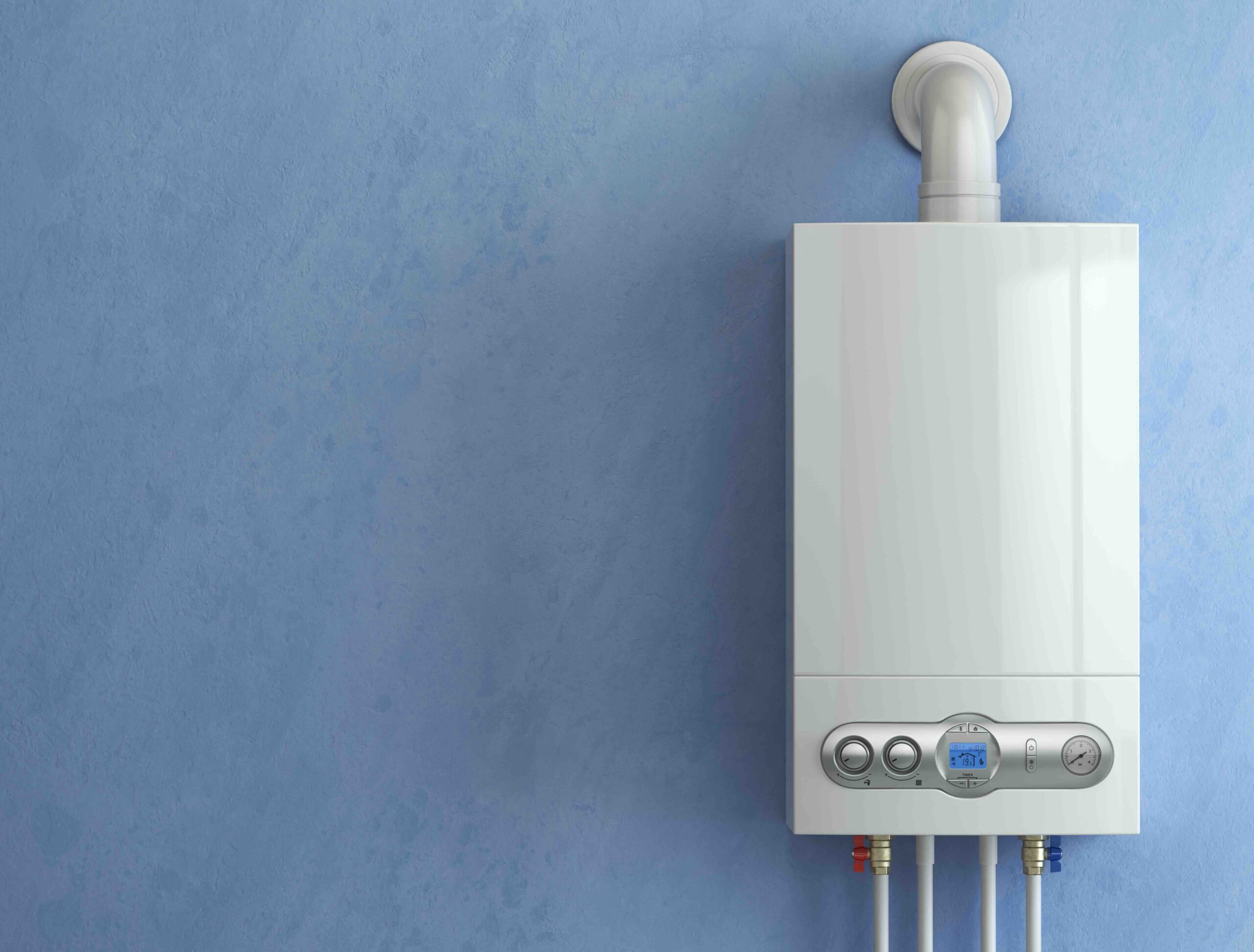Choosing the right water heater for your home can significantly impact your comfort, energy bills, and even the value of your property. In today’s market, homeowners are often faced with the decision between a tankless water heater and a traditional storage tank model. Each comes with its own advantages, drawbacks, and ideal use cases.
Our comprehensive guide will walk you through the key differences so you can choose the best solution for your household’s needs.
Understanding Water Heater Types
What is a Traditional Water Heater?
A traditional water heater, also known as a storage tank water heater, uses a large cylindrical tank that stores and continuously heats a set amount of water—usually between 30 to 80 gallons. The heater keeps the water at a preset temperature, ready for use whenever you turn on the tap.
What is a Tankless Water Heater?
A tankless water heater, sometimes called an on-demand water heater, heats water only as it’s needed. When you turn on a hot water tap, cold water travels through the unit and is quickly heated—either by gas or electricity—before reaching your fixture. This design eliminates the need for a large storage tank and allows for a virtually endless supply of hot water.
How Each Works
| Considerations | Traditional Water Heater | Tankless Water Heater |
|---|---|---|
| Operation | Maintains a tank of hot water | Heats water instantly, on demand |
| Limit | Limited to tank capacity | Unlimited hot water |
| Energy | Constant energy use to maintain heat | Energy used only when needed |
| Lifespan | 8-12 years | 15-20 years or more |
Installation and Space Considerations
Traditional Water Heaters
- Require significant floor space (tall, bulky tanks)
- Easier, lower-cost installation and replacement, especially in older homes with existing setups
- Installation typically takes a few hours and is less disruptive
Tankless Water Heaters
- Compact, wall-mounted units that save space—ideal for small homes or condos
- Installation can be more complex, especially if upgrading from a traditional system, sometimes requiring gas line or electrical upgrades
- Higher initial installation cost, but potential for longer-term savings and home value increase
Performance and Hot Water Supply
Traditional Water Heater
- Supplies hot water up to the tank’s stored capacity; once depleted, there’s a waiting period for more
- Best suited for homes with simultaneous high hot water demands (e.g., running multiple showers)
- Water temperature remains consistent until the tank empties
Tankless Water Heater
- Provides continuous, on-demand hot water—never run out during a long shower
- Flow rate may be lower than tank-based systems; if demand exceeds the system’s capacity (multiple appliances running), hot water availability may be limited
- Some tankless systems can be installed in parallel (“whole-house” setups), boosting capacity
Energy Efficiency and Operating Costs

Traditional Water Heaters
- Standby heat loss occurs as water cools and the unit reheats it, even when you’re not using hot water
- Higher monthly energy bills, especially in larger households or cold climates
- Lower upfront cost, but increased lifetime operating costs
Tankless Water Heaters
- No standby heat loss means greater efficiency, often resulting in 8-14% or more energy savings for average households
- Lower monthly energy bills, particularly in homes that use less hot water
- Higher upfront unit and installation cost, but potential for lower lifetime costs due to efficiency and longer lifespan
Lifespan and Maintenance
| Considerations | Traditional Water Heater | Tankless Water Heater |
|---|---|---|
| Average Lifespan | 8–12 years | 15–20+ years |
| Maintenance | Annual flushing to prevent sediment, anode rod replacement | Descaling annually or biannually, depending on local water hardness |
| Repairs | Simple and often cheaper | Repairs can be more technical and costly |
Traditional tank-based units are more prone to rust and sediment build-up, potentially reducing efficiency and operational life. Tankless models require periodic descaling, especially in areas with hard water, but overall see less daily wear and tear.
Upfront Cost vs. Long-Term Savings
Traditional Water Heater
- Lower purchase price and inexpensive installation
- Replacing an old unit is straightforward and cost-effective
- Potentially higher energy costs over its lifespan
Tankless Water Heater
- Higher initial investment for both the unit and installation
- Long-term energy savings due to higher efficiency
- Longer lifespan means you’ll replace the unit less frequently over decades
Environmental Impact
Tankless water heaters are generally more eco-friendly, as they reduce both energy usage and greenhouse gas emissions associated with constant heating. Traditional tank systems, while convenient, maintain a large volume of hot water around the clock, leading to greater energy consumption and a larger carbon footprint over time.
Common Myths About Tankless Water Heaters
Myth 1: Not Enough Hot Water
- While older tankless models may have struggled with high household demand, modern systems are capable of providing an endless supply as long as the model is sized appropriately.
Myth 2: All Homes Can Easily Switch to Tankless
- Some homes may require significant retrofit work, including electrical upgrades or new gas lines. Always consult a professional for compatibility and sizing.
Myth 3: Maintenance-Free Operation
- Tankless water heaters do require periodic maintenance, particularly descaling, to keep them running efficiently, especially in areas with hard water.
Pros and Cons at a Glance
| Factor | Traditional Water Heater | Tankless Water Heater |
|---|---|---|
| Upfront Cost | Lower | Higher |
| Operating Cost | Higher (more energy used) | Lower (pay only for use) |
| Space Required | Significant | Minimal, wall-mounted |
| Hot Water Supply | Limited by tank size | Virtually unlimited |
| Life Expectancy | Shorter (8-12 years) | Longer (15-20+ years) |
| Maintenance | More frequent | Less frequent, more technical |
| Environmental Impact | Higher | Lower |
When to Choose a Tankless Water Heater
You should consider a tankless water heater if:
- You want to save energy and reduce utility bills
- Unlimited hot water is important (e.g., large family, guests, high hot water usage)
- Floor space is limited in your home
- You’re planning a long-term stay in your home and want a longer-lasting investment
- You care about reducing your environmental footprint
- You’re interested in increasing your home’s resale value
When a Traditional Water Heater is Best

A traditional storage tank water heater might be the right fit if:
- Upfront cost is your primary concern
- Your home already has an easy-ready slot for tank-style heaters
- You require a simple, straightforward installation or urgent replacement (such as during a breakdown)
- Simultaneous high-volume hot water needs are frequent and you don’t want to upgrade plumbing
Stay in the know! Here are 5 signs that your water heater is about to fail.
Tankless Water Heater Sizing and Professional Installation
Selecting the right model and size for your home is crucial for both types, but especially with tankless units. Sizing is based on maximum flow rate (gallons per minute) and the temperature rise required in your area. Undersized systems can result in tepid showers if too many appliances run at once.
Professional installation is recommended—a reputable service provider, like Pipeworks, can assess your home’s hot water demands, existing infrastructure, and recommend the system that best fits your budget and requirements.
The decision between a tankless water heater and a traditional water heater depends on your individual needs, budget, existing home setup, and long-term plans. Tankless water heaters offer clear advantages in energy efficiency, unlimited hot water, longevity, and space savings, making them an excellent investment for many modern homes. However, the lower upfront cost, straightforward replacement, and simplicity of traditional heaters can make them the better option for some situations.
Final Thoughts: Which Is Best for Your Home?
Think about your family’s typical hot water usage, your budget for upgrades and installation, and your energy-saving goals. Consulting with plumbing and heating experts like those at Pipeworks can help ensure your investment provides lasting comfort—and real value—for years to come.


